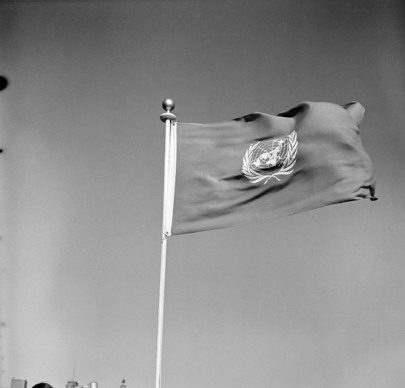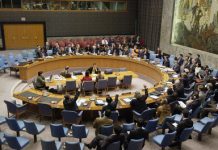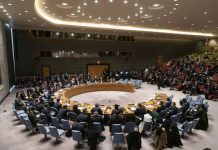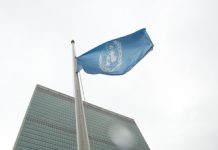Ukraine’s nuclear security situation ‘highly challenging’, warns UN atomic watchdog chief
Safety at Ukraine’s largest nuclear power plant “remains a deep source of concern”, the head of the UN’s atomic watchdog said on Thursday, amid Russia’s ongoing full-scale invasion.
Zaporizhzhya Nuclear Power Plant (ZNPP) – which is also Europe’s biggest nuclear energy facility – has been under Russian control, since shortly after Moscow’s full-scale invasion began in February 2022.
Earlier this week, teams of experts from the UN International Atomic Energy Agency (IAEA) crossed the frontline to continue monitoring the plant and four others in Ukraine, as they’ve done for the last two years.
IAEA Director-General Rafael Grossi said that the teams “will stay at these sites for as long as it is needed to help avert the threat of a nuclear accident”.
Mr. Grossi’s comments came as media reports indicated ongoing fighting and drone attacks in the vicinity of the Zaporizhzhya plant in southeastern Ukraine. The IAEA chief confirmed that the monitoring team heard “frequent explosions” some distance away from the facility, which was not damaged.
Myanmar’s Rakhine state ‘a famine in the making’: UNDP
To Myanmar, where UN aid teams have expressed deep concern about impending famine that could affect two million people in Rakhine state now under blockade.
The warning from the UN Development Programme, UNDP, highlights how people’s incomes are collapsing amid widespread restrictions linked to heavy fighting that erupted after the military coup of February 2021.
“Rakhine could face acute famine imminently,” the UN agency said, predicting that domestic food production will only cover 20 per cent of needs by March to April next year.
UNDP pointed out that rice production in Myanmar – which is a staple food – is also plummeting, owing to a lack of seeds, fertilizer, severe weather and a steep rise in the number of internally displaced people, amid “escalating conflict”.
Rakhine state is home to the vulnerable Rohingya community, many of whom fled a military crackdown in 2017 in their hundreds and thousands, in an operation likened to ethnic cleansing by former UN human rights chief Zeid Ra’ad Al Hussein.
Today, around one million Rohingya continue to shelter in neighbouring Bangladesh, where UN aid teams have had to cut food rations because of funding shortages.
In a statement condemning the humanitarian crisis, the UN development agency said that the military junta’s blockade was “collective punishment” on an already vulnerable population.
The generals are clearly aiming to isolate Rakhine [state] from the rest of the country, UNDP said.
Countries step forward to tackle childhood violence affecting one billion youngsters
Violence affects one billion children around the world but more than 100 governments pledged on Thursday to stamp it out, helped by UN agencies including the World Health Organization, WHO.
Welcoming the commitments made at a ministerial meeting in Colombian capital Bogota, WHO chief Tedros Adhanom Ghebreyesus said that “despite being highly preventable, violence remains a horrific day to day reality for millions of children around the world”.
Abuse leaves “scars that span generations”, Tedros added, noting that countries had agreed to extend support to at-risk families, ensure that schools are safe places, and tackle online abuse. “These actions will be fundamental to protecting children from lasting harm and ill health,” the WHO chief said.
According to the UN health agency, half of all children globally – one billion –suffer “some form of violence”.
This includes corporal punishment – which is the most common form of childhood violence – bullying, physical or emotional abuse and sexual violence.
“Violence against children is often hidden, mostly occurs behind closed doors and is vastly underreported,” WHO said. It estimates that fewer than half of affected children speak up about their abuse, and under 10 per cent receive any help.
Daniel Johnson, UN News
Music composed and produced by Joachim Harris. All rights reserved
Source of original article: United Nations (news.un.org). Photo credit: UN. The content of this article does not necessarily reflect the views or opinion of Global Diaspora News (www.globaldiasporanews.com).
To submit your press release: (https://www.globaldiasporanews.com/pr).
To advertise on Global Diaspora News: (www.globaldiasporanews.com/ads).
Sign up to Global Diaspora News newsletter (https://www.globaldiasporanews.com/newsletter/) to start receiving updates and opportunities directly in your email inbox for free.































